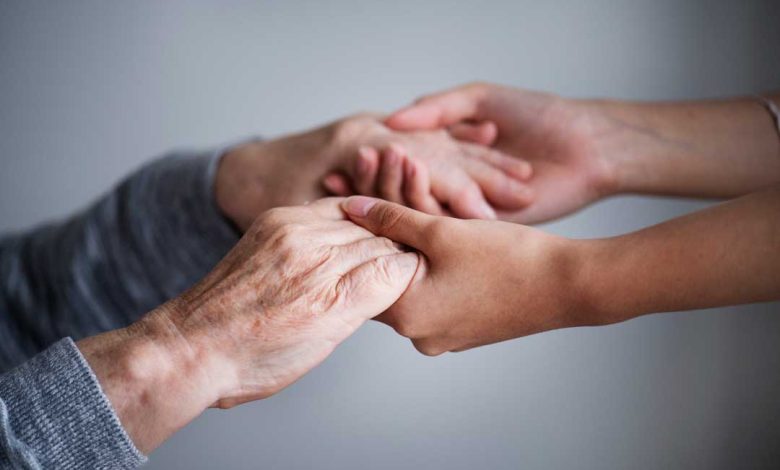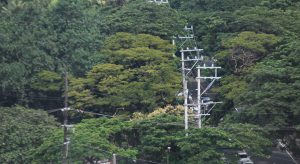Cultivating resilience

The ongoing Ako Para Sa Bata (APSB) conference webinars have presented many facets about child protection.
Among them is “Resilience, the ability to thrive amidst difficult situations. It is the buffer between stressors and one’s mental health. People tend to rely on others. Going through failure and hardship in life tends to strengthen resilience.”
The objective is to see the factors that affect individual resiliency and how organizations survive and thrive amidst adversity and turbulence.
Ma. Regina Hechanova-Alampay PhD, RPsy, (professor at Ateneo de Manila University, Chief of Party, USAID RenewHealth project) highlighted a chart that reveals COVID-19 Mental Health Concerns of Filipinos which showed the youth (age 25 and below) and women are at risk.
Those suffering from severe to extreme stress came up to 55% of those studied, with 70% suffering from anxiety and 55% from depression. The stressors included health exposure to COVID, and illness. Occupational Stressors in-cluded increased responsibilities, while Social Stressors were lack of social support, discord in the family, and COVID news, and Governance Stressors were access to basic needs, and loss of income.
Coping behaviors matter. How people cope affects how resilient they feel. Spiritual behavior (looking at thing in a different way) lead to diminished depression and anxiety especially among the mature population. Resilience is both “Nature and Nurture: innate and developed.”
“While there are individual resources which contribute to resilience, communities and societies also provide resources which are key to facilitating resilience.”
She focused on workers in companies and organizations. There was a decline, she noted, in problem solving, perspective taking, and spirituality. There was an increase in distraction, denial and substance use. Organizations can help employees become resilient by providing the basic needs: safety, medical service, self-care information, and education on self-care. For Employee Care they can embark on Wellness programs and benefits, psychological first aid, training supervision, the prevention of stigma and discrimination, mental health stress management programs, counseling and coaching, psychological debriefing, and peer support group. Specialized services include the referral to mental health professionals and coverage of mental health service.
Among the programs is Katatagan — a psychoeducational intervention of the future; a way of finding strength to develop resilience skills for those with mild or moderate distress. It is composed of: Making the future; Finding and cultivating strengths; Managing physical reactions; Managing thoughts and emotions; Positive activities; and, Seeking solutions and support. It is delivered though synchronous small groups meeting virtually for three to six weeks; asynchronous facilitated online classes wherein participants go through modules on their own time; and the innovative Lusog Isip (Mental Health) App that allows one to monitor mood, coping mechanism and stress levels.
The Johns Hopkins Model has three phases with organization strategies that would enable organizational resilience in the Philippines. These are:
1.) Resistance has communication system, formation and training of response teams, business continuity plans, database of employees and monitoring system;
2.) Resilience has impact assessment on employees and organization, psychological first aid, provision of materials and financial resources to affected employees;
3.) Recovery has access to resilience programs, counseling, review of protocol, and, restoration of facilities.
Dr. Bernadette J Madrid, executive director of the Child Protection Network Foundation, head of the PGH Child Protection Unit, and a pediatrician, talked about Organizational Resiliency as “the ability of an organization to anticipate, prepare for, respond, and adapt to incremental change and sudden disruptions in order to survive and prosper. Resilience, being prepared, proactive and flexible are guides against failure, she said.
She said that “Successful organizations have well-established routines. Work is predictable.” She said that they have simple rules or heuristics — “rules of thumb that help you speed up decision making and prioritize the use of resources in less-predictable contexts.” And, improvisation –“spontaneous and creative efforts to address an opportunity or a problem.”
“The ease with which teams refashion how specific tasks get done — whatever the level of turbulence — is the defining capability of a resilient organization,” she said.
Managing Risk and Resilience were discussed by Fernando F. Suarez and Juan S. Montes in the Harvard Business Review (November/December 2020). Dr. Madrid explained, “No one was really prepared for a pandemic. It’s world-wide. It’s deadly! It affects everybody from all sectors. Existing problems become worse…. We don’t know when it will end. It’s unpredictable. It’s not in our control. You can be unemployed. Your whole family can be affected.”
The University of the Philippines (UP) Philippine General Hospital (PGH) Child Protection Unit charts the reported cases of Violence against Children. It showed a high in January 2020, a decline that April, and an increase in December. However, not all cases are reported because some resources shifted to responding to COVID-19, and social workers were busy. No home visits were allowed. Schools were closed. No transportation was available during the strictest quarantine. People were afraid to go to the hospital. The perpetrators were at home with the victims, preventing them from seeking help. These exacerbated the crisis.
The response of UP-PGH COVID 19 Operations center was the expansion of the hotline to include child abuse. Around the country, the Women and Children Protection Units Helpline was active from Batanes at the tip of Luzon, through the Visayas, and down to Mindanao. In partnership with the UNFPA (United Nations Population Fund), the virtual access, Child Protection Network (CPN) web-based database collected date for processing and analysis. With UNICEF, there is digitalization of services, telemedicine consults, there are video-visits or cellphone follow-ups.
Case conferences are virtual. Online court hearings are being done.
Parenting tip sheets — “Masayang Pamilya Parenting Program” in Filipino and seven other Philippine languages (with information from Ateneo, Oxford University, the CPN, and UNICEF) — were prepared and are being dis-tributed.
Child maltreatment is being addressed despite the limitations and restrictions of the pandemic lockdown.
In partnership with the ICTSI Foundation, the more complex cases are being handled.
In partnership with UNICEF, CPU has multidisciplinary teleconsultation with 55 barangays in 13 cities. The barangays and cities have TeleCPU and Child Helpline.
The challenges of CPU are staff burnout, the need for increased resources to help staff and patients, and mental health support.
The open forum was very lively with Kara Patricia David –GMA TV host, assistant professor at the UP College of Mass Communications, and Founder of the Malasakit Foundation — interacting with panelists and partici-pants.
Dr. Madrid and Dr. Hechanova-Alampay assessed staff burnout and exhaustion. “Feeling there is nothing left to give. The lack of empathy comes from exhaustion… When you stop loving the work you do, it becomes some-thing you dread.”
It was noted that hyper-independent people do not ask for help because there is hiya or shame. The message should be: “It is okay to ask for help.”
The strongest predictor of meaningful work is feedback from clients, bosses, or peers. Leaders should be more expressive of their praise of others. “One strategy is the sandwich method — the affirmations of the work, the feedback itself, then closing with encouragement.”
The discussion led to the possible triggers of suicidal thoughts. Parents should be educated about the principle of trauma-informed care and prevention. Thoughts are not innate — they could be traced to trauma.
Dr. Madrid recommends the book The Body Knows and asserts that every experience is absorbed by the body and can have symptoms.
At the end, the panelists said, “Together, we can stop violence against children.”
The APSB conference ends on Nov. 25 with the 8th and final webinar: “Violence for, by and with the Children and Youth.”
It has been an enlightening experience for more than 10,000 participants.
Our warm congratulations and thanks to Child Protection Network Foundation, UNICEF, the partner-sponsors, and the efficient organizers and team who have presented the broader view and deeper insights on the Child.
MARIA VICTORIA RUFINO is an artist, writer and businesswoman. She is president and executive producer of Maverick Productions. mavrufino@gmail.com




